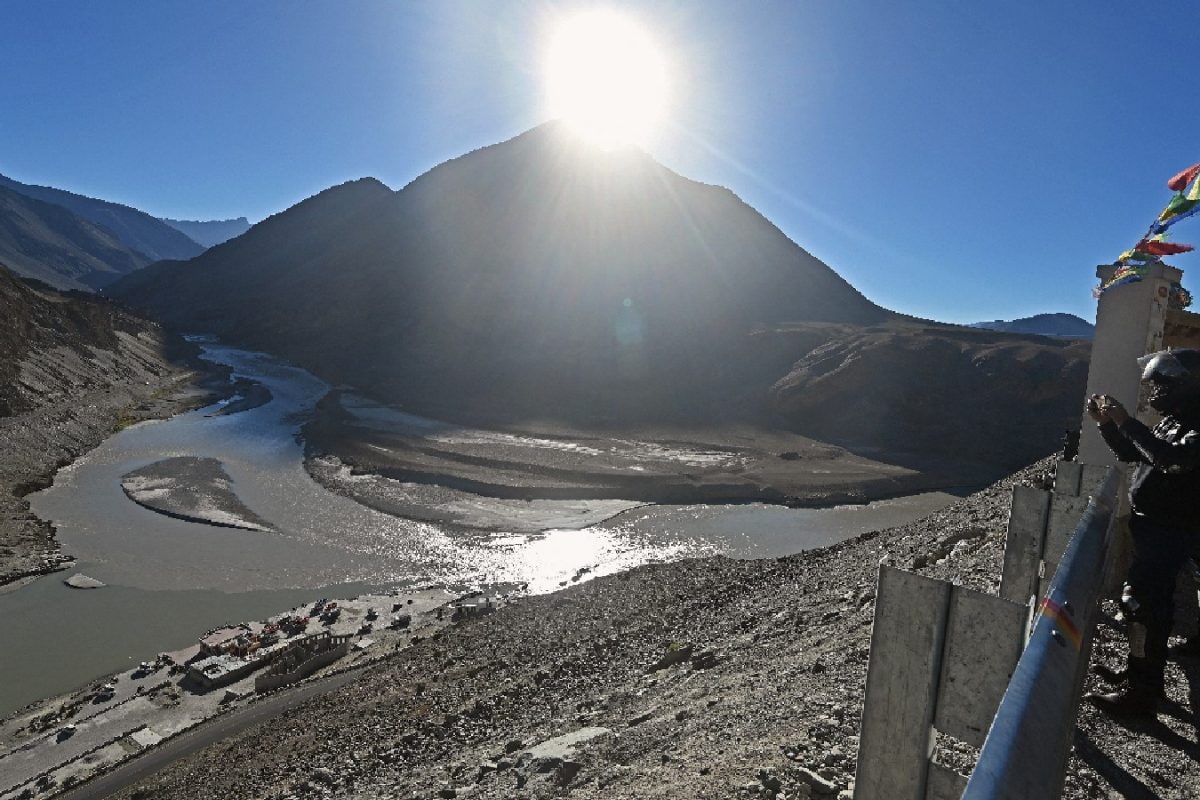Turning off the tap until the violence stops is the logical response when perpetrators drink at the victim’s well “The sacralisation of the Indus Waters Treaty (IWT) as a triumph of cooperation ignores its historical contingency and the fragility of its political foundations," cautions environmental historian Daniel Haines in ‘Indus Divided: India, Pakistan, and the River Basin Dispute’. Six decades after that Cold War bargain, New Delhi has suspended the treaty and put water—South Asia’s most irreplaceable resource—squarely on the strategic chessboard. Critics moan about humanitarian optics and legal blowback; a hard-nosed Indian strategist sees long overdue leverage meeting long-running provocation.
Weaponising water is as old as siege warfare. Chinese commanders burst Yellow River dikes in 1938, drowning 800,000 civilians to stall Japan; the Dutch flooded their polders in 1672 against Louis XIV; Britain’s 1943 ‘Dambusters’ raid ruptured Germany’s Ruhr dams, killing 1,300 and crippling industry. Saddam Hussein drained Iraq’s marshes to uproot Shia Arabs, ISIS toggled Syrian reservoirs to starve rivals, and Russia’s 2023 destruction of Ukraine’s Nova Kakhovka dam displaced tens of thousands.

History shows the side that controls the headwaters commands the battlefield; soft power sermons rarely alter that calculus. The IWT granted Pakistan unrestricted use of the Indus, Jhelum and Chenab while India retained the smaller Ravi, Beas and Sutlej plus token run-of-river rights. India thus controls the Himalayan catchments yet draws barely 15 per cent of basin flow, while Pakistan’s agriculture guzzles 90 per cent of its freshwater from rivers it does not originate.
That imbalance once seemed the price of quiet borders—until Uri 2016, Pulwama 2019 and the alleged Pahalgam plot of 2025. Tolerating terror while sipping free headwaters was never sustainable; Delhi’s April 2025 abrogation flips the script so that aggression now invites drought. The inevitable photographs of thirsty children in Sindh will tug heartstrings, but causality matters.
Pakistan is the perpetrator, exporting jihad; India is the victim. Expecting the victim to hydrate its attacker is strategic absurdity. Great powers are not squeamish: Washington starved Saddam with oil-for-food sanctions and still dictates Iraqi airspace; China diverts the Mekong without asking Laos or Cambodia.
Realpolitik, not empathy, governs national survival—and leaders who forget that lose elections and wars. Islamabad’s dash to the International Court of Justice is predictable, yet history shows ICJ verdicts bite only when backed by power. The United States ignored the 1986 Nicaragua ruling; China shrugged off the 2016 South China Sea award.
India today is a 3.5-trillion-dollar economy, a Quad pillar, G20 host and the West’s indispensable counterweight to Beijing; Pakistan is bankrupt, diplomatically cornered and militarily over-dependent on China. Paper judgements cannot refill its canals.
Cutting even ten per cent of Indus flow scorches Pakistan’s Punjabi breadbasket—the same demographic pool that feeds its terror pipeline. Hunger concentrates minds faster than diplomatic dossiers. Scarcity will also expose Pakistan’s feudal water mafia: 47 billion cubic metres now evaporate or seep away through archaic canals because reform is politically suicidal.
Only crisis will force the reckoning. Meanwhile, Delhi’s willingness to weaponise water sends a clear signal to Beijing, which eyes the Brahmaputra from Tibet. China now knows any adventurism in Ladakh or Arunachal could trigger reciprocal pain—hydrological or otherwise.
None of this requires a reckless deluge. India can calibrate reductions, starting with seasonal diversions after Pakistan’s sowing period: pain rises steadily, famine headlines never materialise. Satellite-verified telemetry can prove India meets a minimum ecological flow—one India defines—forcing critics to disprove real-time data.
Modest grain shipments routed through UN corridors to Sindh let Delhi look magnanimous while exposing Islamabad if aid stalls at Punjab’s border. And by courting Saudi, UAE, and Japanese investment in Indian agriculture, Delhi converts water leverage into export opportunity, replacing wheat acreage Pakistan loses. China’s 60 gigawatt “super dam" at Medog poses a real counter-lever, but Beijing also values a stable Himalayan frontier and India’s market.
A calibrated Indus squeeze signals resolve without pushing Pakistan wholly into China’s embrace. Simultaneously, Delhi can fast-track flood-data pacts with Bhutan and Bangladesh, expand pumped storage in Meghalaya, and deepen reservoirs on the Siang, cushioning any Brahmaputra shock. Internationalising Tibetan glacier conservation further pressures Beijing to explain opaque projects in forums it cannot ignore.
Precedent favours pragmatists. Tehran shrugged off reparations in the 1980 US-Iran hostage case; Sudan and South Sudan kept skirmishing over oil despite arbitration maps; China kept dredging reefs after losing in The Hague. Muscle frames every subsequent negotiation.
By exercising hydrological leverage now, India resets the baseline for any future accord rather than pleading for equal treatment under outdated terms. Suspending the IWT is not cruelty; it is rational statecraft. Pakistan wagered that nuclear weapons provided a terror umbrella India dare not breach.
Balakot air strikes poked the first hole; hydrological pressure tears it wider. Treaties born from Cold War expediency and post-Partition angst cannot shackle a 3.5-trillion-dollar aspirant to great power status.
Turning off the tap until the violence stops is the logical response when perpetrators drink at the victim’s well. Justice begins by reclaiming the bucket and letting the desert deliver the lesson. The writer is a senior broadcast journalist who writes on cultural diplomacy.
Views expressed in the above piece are personal and solely those of the author. They do not necessarily reflect News18’s views..
Politics

Opinion | Rivers Of Retaliation: Why Weaponising The Indus Is Rational Statecraft

Turning off the tap until the violence stops is the logical response when perpetrators drink at the victim’s well















